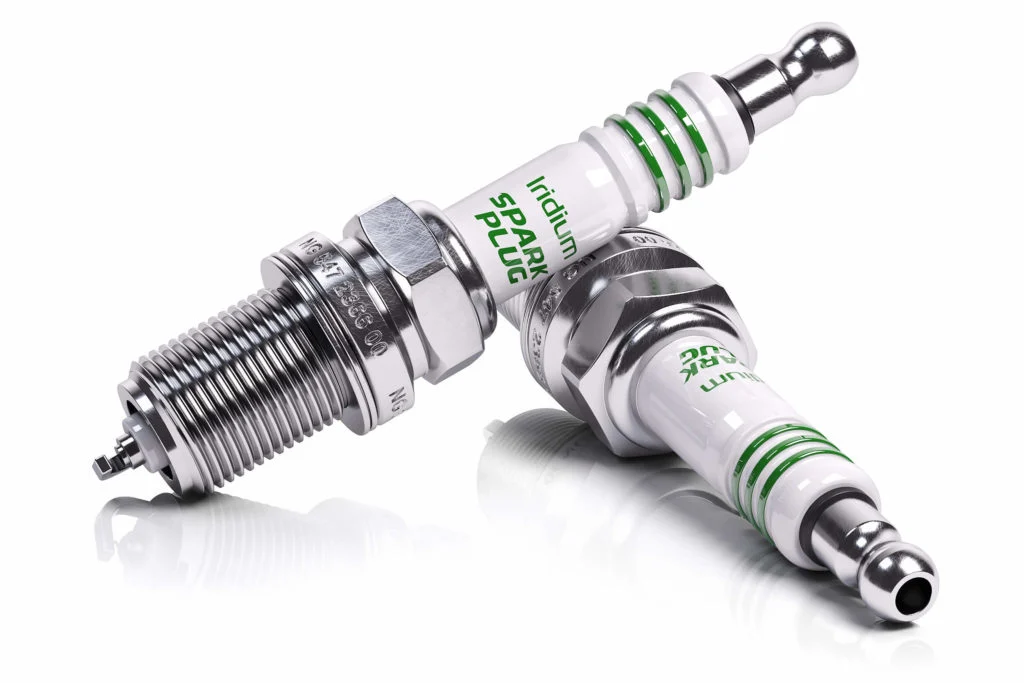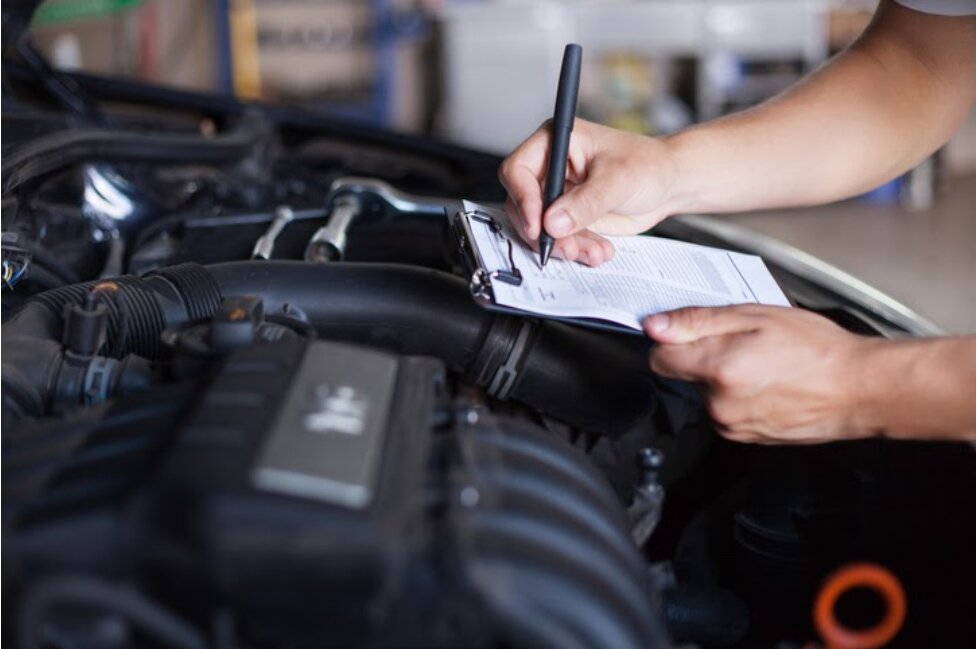Being in a lurching, juddering, or jerking car while on the road can be scary. It’s one thing if your car shudders when it’s parked and idling but when your car is jerking while driving at speed, it could take you by surprise and even cause you to lose control of your car.
A jerking engine or car could be caused by a number of issues from a dirty air filter to a clogged catalytic converter. And if left unchecked for too long, the issue could cause major, more costly problems later on.
| Table of Contents |
What a Jerking Car Feels Like
Your car can jerk in a number of situations be it while driving or at a standstill. When your car jerks, it often feels like it’s struggling to move forward even when you press down on the accelerator pedal. Here are some common instances when a car can be jerking.
Car Jerking While Driving at a Constant Speed
Imagine driving while maintaining speed on the highway and your car engine suddenly jerks. It usually involves your car juddering abruptly before continuing like normal, or, in some cases even hesitating for a second and then lunging forward when you step on the accelerator.
This can definitely be scary especially if there are other cars around you going at high speeds too. Common issues related to this include faulty fuel injectors or mass airflow sensors, or dirty filters.
Car Jerking When Accelerating
The most common instance of a car jerking is when accelerating from a standstill. When this happens, a car usually hesitates to move when you step on the accelerator, accompanied by either a sudden lurch forward or juddering as though your car is struggling to move. Common problems contributing to engine jerking when accelerating include a faulty throttle cable, worn spark plugs, or faulty fuel injectors.
Car Jerking While Idling
Sometimes, your car could jerk, shake, or rattle even at idle. Slight vibrations are normal, especially in an older car but excessive vibrations could be a sign of structural issues like worn-out bushings or damaged engine mounts.
Though not as common, you could also have your engine jerking or stuttering while idling, and feeling like it’s out of breath. If your car jerks like this at a low RPM, you could have bad spark plugs or a worn throttle sensor.
Car Jerking While Braking
This is an uncommon problem, though it could still be dangerous. A car that jerks while braking can abruptly jerk to a stop or shake rapidly before stopping. Your car might also have reduced stopping power which can lead to accidents especially if you’re in a situation where you can’t brake in time. If your car jerks when braking, you could have a warped brake rotor/disc or excessive debris on your brakes.
Read More: What do Your Car Warning Lights and Indicators Mean
What Can Cause a Jerking Car?
A jerking car can be caused by a number of issues. While some are easily fixed like replacing a dirty air filter, some signs require more attention. Many issues that cause your car to jerk can trigger the Check Engine Warning Light, so that is one sign to look out for.
Worn Out or Damaged Spark Plugs
Spark plugs are responsible for delivering the electric current from the ignition system to the combustion chamber. This “spark” ignites the mixture of fuel and compressed air which then moves the pistons in your engine cylinders. If you have faulty spark plugs, the fuel can’t ignite properly and the cylinders will misfire.

This misfiring can cause your car to jerk when accelerating, while maintaining speed, as well as vibrate excessively when idling. Your car could also lose power and jerk for a moment while driving before lurching forward if you have issues spark plug issues. Fortunately, you can fix this issue by replacing the spark plugs, which are generally affordable and should be part of your regular servicing schedule.
Dirty Air Filters
The air filter functions to prevent dirt and debris in the air from entering the engine. If it’s dirty, it could restrict airflow to the engine, thus reducing the amount of oxygen that the engine gets. This causes an uneven oxygen-to-fuel ratio in the engine which leads to misfiring. As a result, your car will jerk and stutter, especially when accelerating.
Oftentimes, the engine compensates for this by consuming more fuel to produce the same amount of power which then affects fuel economy. To prevent this, it’s important to regularly replace your air filter during each scheduled service.
Dirty Fuel Filters
Like an air filter, the fuel filter screens dirt and debris in the fuel. If it gets dirty, it could prevent enough fuel from getting to your engine causing jerking in your car. However, a dirty fuel filter could cause other issues including reduced engine performance especially under heavy acceleration, stalling while driving, and hard starting.
If left unchecked, a dirty fuel filter could cause other parts of your fuel system to fail. For instance, your fuel pump could work harder to supply more fuel to the engine which may cause the pump to overheat and break down.
Clogged Fuel Injectors
The fuel injectors send a steady stream of fuel into your car’s engine cylinders. When a fuel injector gets dirty, it won’t be able to deliver the right amount of fuel to your engine quickly enough. In the end, the fuel won’t get properly ignited which causes misfiring. Car jerking due to dirty fuel injectors is fairly rare, but fuel injector issues can lead to engine failure so it’s important to check it out.
To prevent clogged fuel injectors, you can regularly clean them with fuel injector cleaners – just pour the cleaner into your fuel tank according to the product instructions and you’re done. You can also consult your mechanic to find out more about fuel injector cleaners that they recommend.
Read: Why Your Car Breaks Down & How to Get Help
Malfunctioning Mass Air Flow Sensor
The mass air flow (MAF) sensor measures the amount of air that your engine gets. This data is then used to adjust the amount of fuel that the fuel injector should supply to ensure the right oxygen-to-fuel ratio is maintained. With a defective MAF sensor, the fuel injector might end up sending the wrong amount of fuel to the engine, causing a host of problems.
Your car could end up jerking when accelerating or while driving at high speeds. Your car could even have difficulty starting and could shake or stall while idling. If ignored for too long, a defective MAF sensor could cause your car to have reduced fuel efficiency and poor emissions.
In extreme cases, it could cause the engine to seize, meaning it gets locked up and is unable to start. Depending on the extent of the damage, fixing a seized engine can be extremely difficult and expensive, so make sure you get your car checked if you encounter these problems.
Blocked or Damaged Fuel Line
A blocked or damaged fuel line could be another reason why your car is jerking. The fuel line transports fuel throughout your engine and when there’s a cut or clog in the fuel line, there could be uneven fuel pressure to the engine. The low fuel pressure will cause your engine to misfire, which leads to jerking. If left unchecked, the leak from the damaged fuel line could even cause your engine to catch fire.
Transmission Issues
There are a number of transmission issues that can cause your car to jerk. If you have low transmission fluid, your car could shake or shudder when idling. You could also find your car jerking or lurching violently when accelerating from a standstill, especially right after you start your car.
Another issue that could cause your engine to jerk is a malfunctioning transmission control unit (TCU). The TCU controls the shifting of your car as you accelerate so a malfunctioning one could cause your car to shift gears inconsistently or slowly which leads to your car jerking.
Clogged Catalytic Converter
The catalytic converter reduces the exhaust particles that your car emits. However, if it becomes clogged, it could cause an exhaust buildup which reduces airflow in your exhaust system. The obstructed airflow can cause jerking in your car and a number of other issues.
Besides causing your car to jerk when accelerating, at speed, or while idling, a clogged catalytic converter could affect the fuel economy of your car and even increase your car’s exhaust emissions. If you notice that your car engine is jerking, consuming more fuel, spewing out more smoke, or producing rotten exhaust smells, then you could have a clogged catalytic converter.
Brake Issues
If your car jerks or vibrates excessively when braking, the culprit is most likely a problem with the brakes. If you have worn or dirty brake pads, your brakes will usually produce a grinding or squealing noise when you brake, accompanied by some vibration. If you have warped or damaged brake rotors, your car could jerk violently when braking, depending on the condition of the rotors.
Your car could also pulsate as you slow down due to the uneven rotors, taking more time to stop. These issues are especially dangerous as they result in reduced stopping power, which can lead to accidents.
While you can still drive a jerking car if the occurrences are minor or few and far between, more frequent and stronger jerking when driving at constant speed could mean there are serious issues with your car. Jerking in your car may develop from a minor issue into a more major, costly issue.
Visit a CARSOME Service Center to Fix Your Jerking Car
If you experience any jerking in your car and would like to get it fixed, simply drop by one of our CARSOME Service Centers to get it checked. Our trained mechanics will do their best to identify and fix the problem to ensure your car runs smoothly and safely again.
Plus, we guarantee to use only quality spare parts and provide transparent billing, so you know exactly what you’re paying for upfront. If you’re looking for a place to service your car, we also offer affordable service packages from only RM98.
So what are you waiting for? Book your service appointment at a CARSOME Service Center now.
This content was originally published on 15/12/2021. It has been updated for freshness, accuracy, and comprehensiveness.

